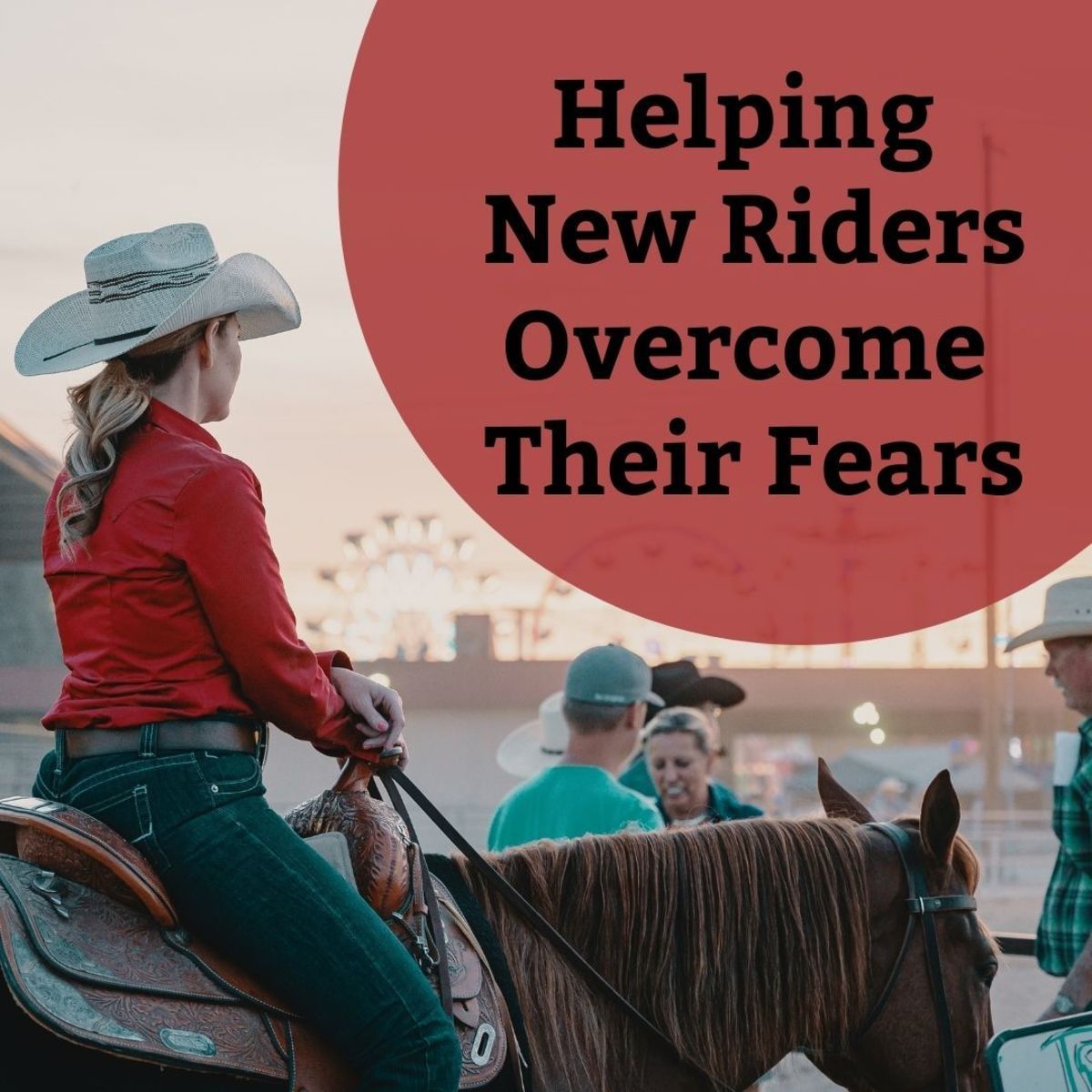Are you someone who has always been fascinated by horseback riding but has a fear of actually getting on a horse? Don’t worry, you’re not alone! Many people have a fear of riding horses, whether it’s due to a previous bad experience or just the fear of the unknown. But fear should never hold you back from trying something new and exciting! In this article, we’ll discuss how to overcome the fear of riding horses in horseback riding and give you some tips and techniques to help you conquer your fears.
Now, let’s dive into the topic of overcoming the fear of riding horses in horseback riding. Riding a horse can seem intimidating, especially if you’re not familiar with these magnificent creatures. But trust me, once you overcome your fear and start riding, it can be an incredibly rewarding experience. In this article, we’ll explore the reasons behind this fear, provide some practical steps to gradually build your confidence, and offer some techniques to manage any anxiety or fear that may arise. So, get ready to face your fears and discover the joy and freedom of horseback riding! Keep reading to learn more in-depth information on this topic.
How to Overcome Fear of Riding Horses in Horseback Riding
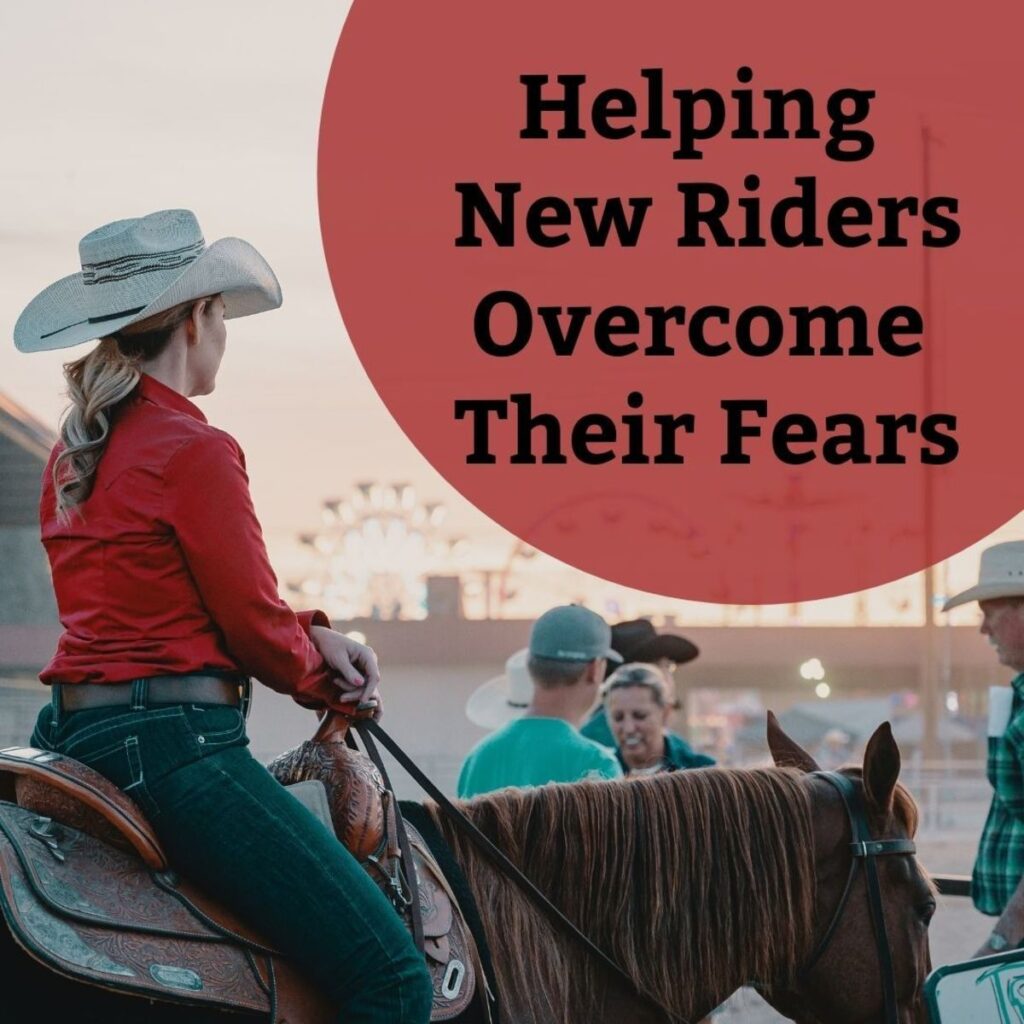
Understanding the Fear of Riding Horses
What causes the fear of riding horses?
Riding horses can be an intimidating activity for many people, and there are several factors that can contribute to the fear of riding horses. These can include:
- Lack of experience: If you are new to horseback riding or have had limited exposure to horses, the unfamiliarity can create fear and anxiety.
- Traumatic experiences: Past accidents or falls while riding horses can lead to a fear of getting back in the saddle.
- Fear of injury: The size and power of horses can be overwhelming, and the fear of getting hurt is a common concern.
- Fear of loss of control: Horses are independent animals, and the fear of not being able to control the horse can create anxiety.
- Phobias and anxiety disorders: Some individuals may have specific phobias or anxiety disorders related to horses or riding in general.
Psychological aspects of fear
Fear is a natural response to perceived threats, and riding horses can trigger various psychological aspects of fear. These can include:
- Fight or flight response: When faced with a fear-inducing situation, the body releases stress hormones that prepare you to either confront the fear or run away from it.
- Negative thought patterns: Fear can lead to negative thoughts and beliefs about your abilities, the horse, or the riding environment.
- Catastrophic thinking: The fear of potential accidents or injuries can lead to thoughts of worst-case scenarios and irrational fears.
- Conditioning and learned responses: The fear of riding horses can be a result of conditioning from past experiences or witnessing others’ fearful reactions.
Common symptoms of fear while riding horses
When experiencing fear while riding horses, individuals may exhibit certain symptoms. These can include:
- Increased heart rate and breathing
- Sweating and clammy hands
- Tense muscles and body stiffness
- Nervousness or anxiety
- Difficulty concentrating
- Fear of losing control or falling off the horse
- Negative thoughts and self-doubt
Identifying Personal Triggers
Recognizing specific triggers
To overcome the fear of riding horses, it is important to identify and recognize specific triggers that cause anxiety. These triggers can vary from person to person but may include:
- The sight or sound of a horse
- Mounting or dismounting the horse
- Riding in open spaces or on uneven terrain
- Riding at faster speeds or jumping
- Riding in a group or with other horses nearby
- Riding in unfamiliar or new environments
Understanding past experiences
Reflecting on past experiences with horses can provide valuable insight into the origins of fear. Understanding the circumstances and emotions surrounding these experiences can help in overcoming fear. Some questions to consider include:
- Have you had any traumatic experiences or falls while riding horses in the past?
- Did you witness someone else being injured or having a negative experience while riding?
- How did those experiences make you feel and what thoughts did they trigger?
Identifying negative thought patterns
Negative thought patterns can contribute to fear and anxiety while riding horses. Identifying and challenging these thoughts is an essential step in overcoming fear. Some common negative thoughts may include:
- “I’m not good enough to ride horses.”
- “I will fall off and get seriously injured.”
- “The horse will misbehave and I won’t be able to control it.”
- “I will embarrass myself in front of others.”
Recognizing these negative thoughts and replacing them with more positive and rational ones is key to building confidence and overcoming fear.
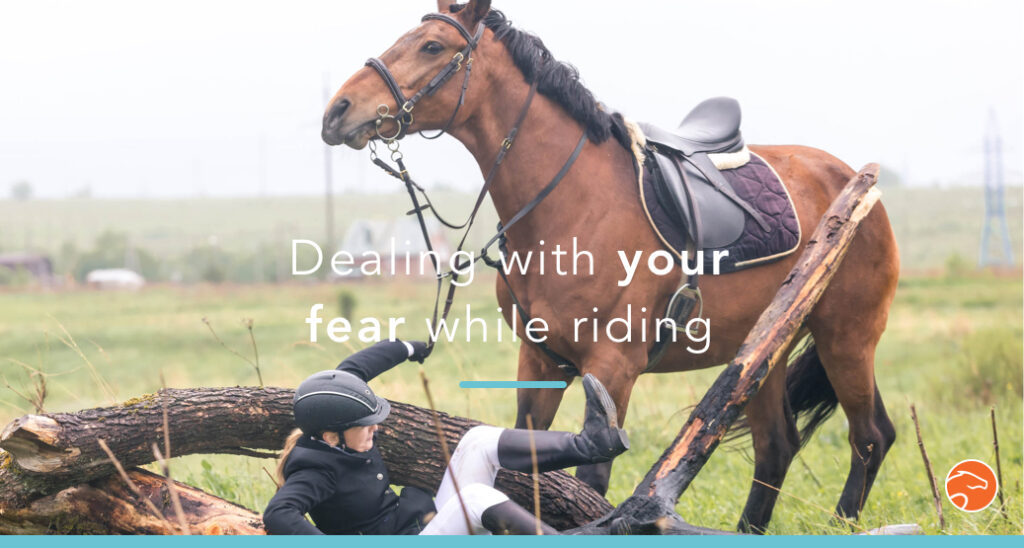
Building Trust with Horses
Developing a bond with horses
Building trust and a positive relationship with horses can greatly contribute to overcoming fear. Some ways to develop a bond with horses include:
- Spending time with horses outside of riding, such as grooming or leading them.
- Observing their behavior and learning to understand their body language.
- Learning about their needs, care, and natural instincts to develop empathy.
Establishing clear communication
Effective communication between rider and horse is essential for building trust and overcoming fear. Establishing clear and consistent communication includes:
- Learning proper riding techniques and commands.
- Understanding how to use body language and voice cues to communicate with the horse.
- Practicing consistent and gentle cues to establish trust and understanding.
Practicing groundwork exercises
Groundwork exercises offer a non-riding approach to building confidence and trust with horses. Some exercises to consider include:
- Leading the horse in various patterns and directions.
- Desensitizing exercises to expose the horse to different stimuli.
- Lunging exercises to establish communication and control.
Effective Techniques to Overcome Fear
Breathing and relaxation exercises
Deep breathing and relaxation exercises can help calm the mind and body during moments of fear. Techniques such as diaphragmatic breathing and progressive muscle relaxation can be practiced before, during, and after riding to manage anxiety.
Visualization and positive affirmations
Visualizing successful and positive riding experiences can help reframe fear into confidence. Creating mental images of yourself riding confidently and repeating positive affirmations can boost your self-belief and reduce anxiety.
Gradual exposure therapy
Gradual exposure therapy involves gradually and systematically exposing yourself to fear-inducing situations at a pace you are comfortable with. Starting with small steps and gradually increasing the difficulty level can help desensitize your fear response and build confidence.
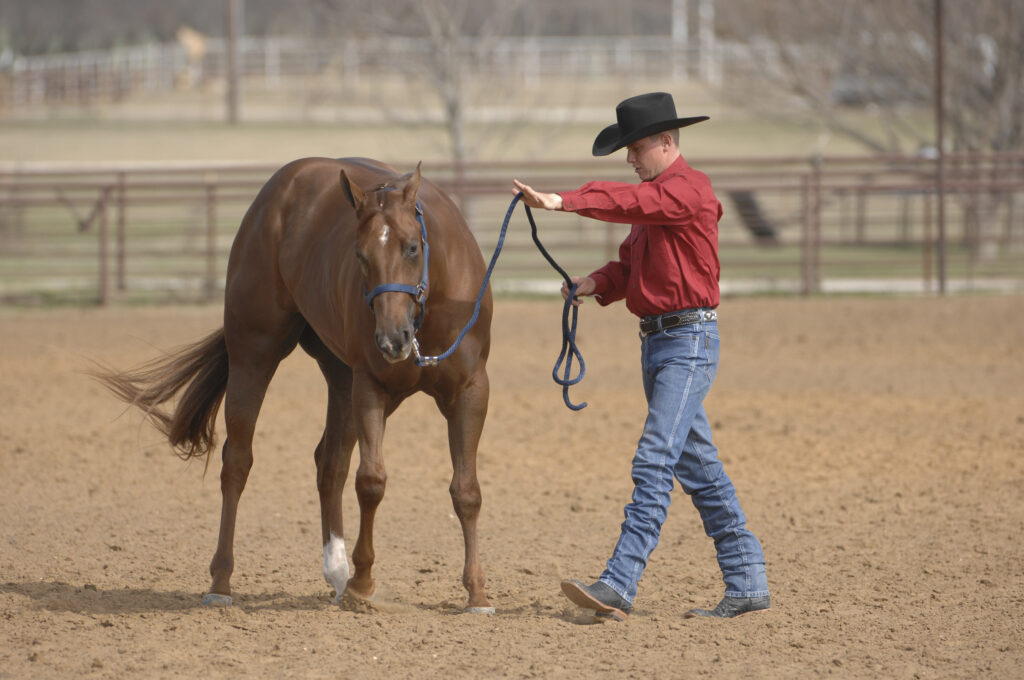
Seeking Professional Support
Working with a qualified horse riding instructor
Enlisting the help of a qualified horse riding instructor can provide guidance and support in overcoming fear. An experienced instructor can help assess your abilities, tailor lessons to your comfort level, and provide valuable feedback to boost your confidence.
Joining support groups or therapy sessions
Joining support groups or therapy sessions specifically designed for riders dealing with fear can provide a safe space to share experiences, gain support from others, and learn coping strategies. Hearing success stories and receiving encouragement can be motivating and inspiring.
Seeking guidance from experienced riders
Interacting with experienced riders who have successfully overcome their fear can offer valuable insights and advice. Sharing your fears and concerns with riders who have been in similar situations can provide a sense of reassurance and inspiration.
Preparing Mentally and Physically
Setting realistic goals
Setting achievable goals can help in overcoming fear and building confidence gradually. Start with smaller, attainable goals and gradually work your way up to more challenging ones as your confidence grows.
Improving physical fitness
Improving your physical fitness through exercises that target core strength, flexibility, and balance can enhance your riding skills and increase confidence. Engaging in activities such as yoga, Pilates, and cardio workouts can help you feel physically prepared for riding.
Practicing mindfulness and meditation
Incorporating mindfulness and meditation techniques into your daily routine can foster a sense of calmness and focus. Mindful breathing exercises and guided meditation can help reduce anxiety and promote overall well-being.
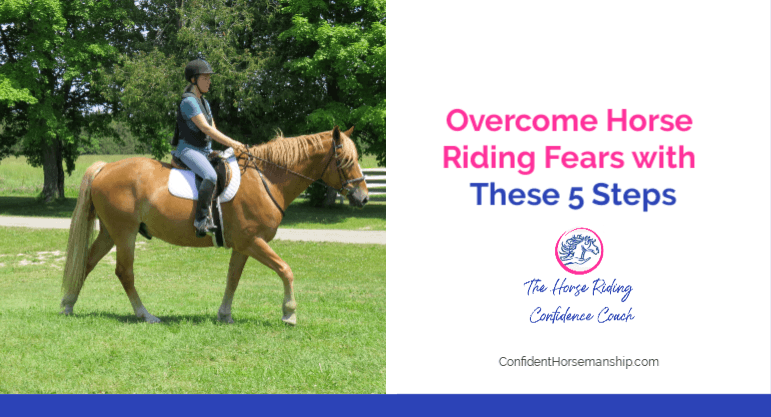
The Importance of Proper Equipment
Choosing the right saddle and bridle
Selecting the appropriate saddle and bridle that fit both you and the horse comfortably is crucial for a successful and safe riding experience. Properly fitted equipment can enhance your comfort, stability, and control while riding.
Ensuring proper fit and comfort
Besides the saddle and bridle, ensuring that your riding attire is comfortable and appropriate for the weather conditions can contribute to a positive riding experience. Invest in proper footwear, helmet, and clothing to ensure maximum comfort and safety.
Using safety gear and protective equipment
To alleviate fears of injury while riding, using safety gear and protective equipment is essential. Wearing a properly fitted helmet and protective vest can provide added reassurance and minimize the risk of serious injury.
Developing Riding Skills and Techniques
Taking riding lessons and clinics
Enrolling in riding lessons or attending clinics with experienced instructors can help improve your riding skills and boost confidence. Structured lessons can provide a step-by-step learning process, allowing you to progress at your own pace.
Learning proper riding posture and balance
Developing correct riding posture and balance is essential for both safety and effective communication with the horse. Learning how to maintain a balanced and aligned position in the saddle can increase your control and stability.
Mastering basic riding commands
Mastering basic riding commands is crucial for clear communication with the horse. Learning how to walk, trot, canter, halt, and steer the horse effectively can instill confidence and enhance your ability to control the horse’s movements.
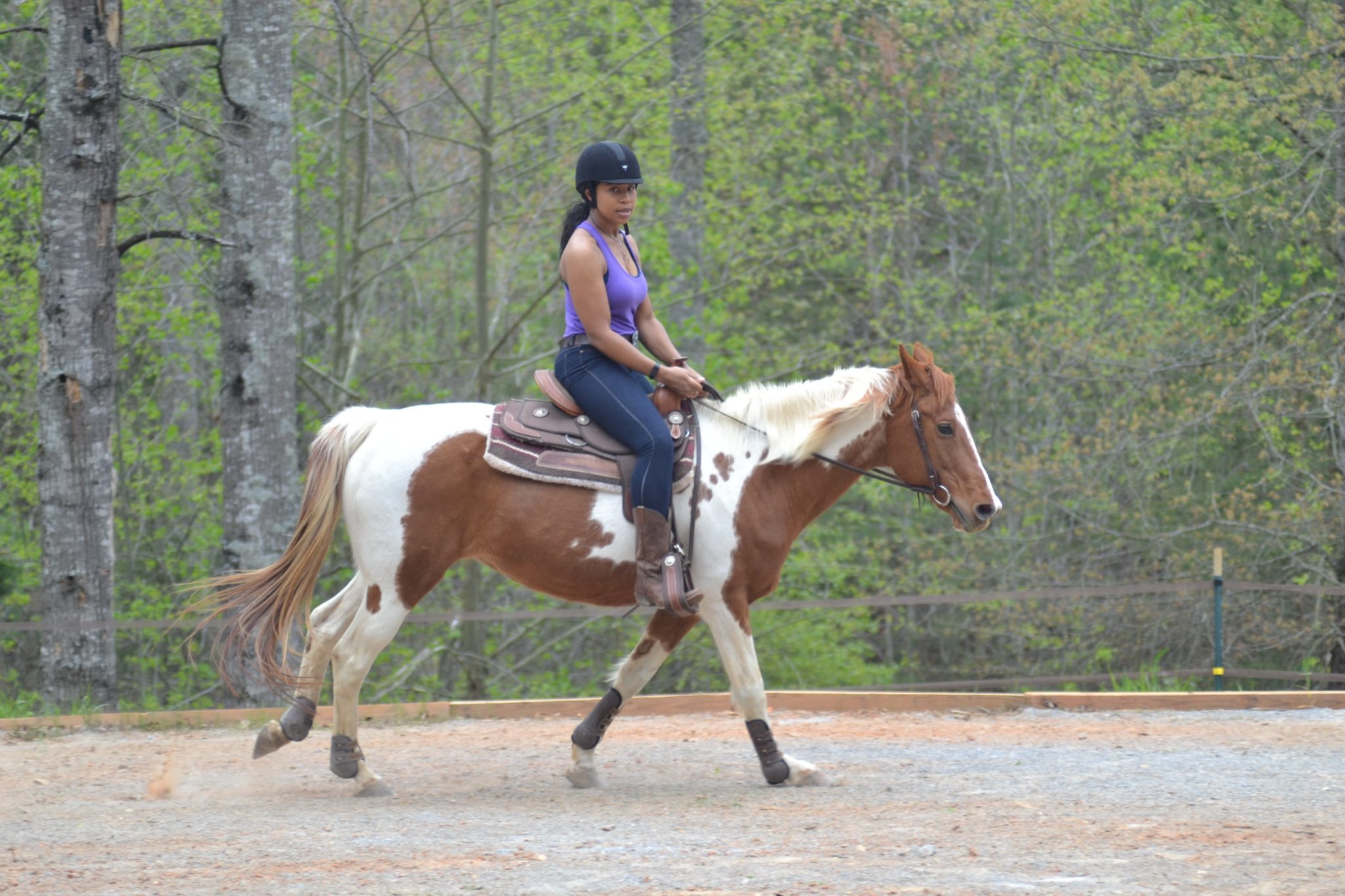
Gradually Progressing to Advanced Riding
Building confidence through small challenges
As your confidence grows, gradually introducing new challenges can further develop your riding skills. Trying different riding styles, working on more advanced maneuvers, or tackling new obstacles can help expand your horizons and build confidence.
Exploring different riding styles and disciplines
Exploring different riding styles and disciplines can open up new avenues of enjoyment and learning. It can be rewarding to try disciplines such as dressage, show jumping, trail riding, or western riding, depending on your interests.
Participating in horse shows and competitions
Participating in horse shows or competitions can provide an opportunity to showcase your skills and celebrate your progress. The experience of riding in a competitive setting can further boost your confidence and help you overcome performance anxiety.
Overcoming Fear of Falling and Accidents
Boosting self-awareness and body control
Developing self-awareness and focusing on body control can help minimize the chances of falling or accidents. Understanding your body position, balance, and core stability can enhance your ability to make small corrections and maintain control.
Understanding horse behavior and instincts
Learning about horse behavior and instincts can provide valuable insights into their actions and reactions. Understanding how horses communicate, their natural instincts, and how they respond to different situations can help you anticipate their behavior and feel more in control.
Practicing emergency dismounts and recovery techniques
Knowing how to perform emergency dismounts and recovery techniques can increase confidence and alleviate fear of falling. Practicing controlled dismounts and learning techniques for regaining control in challenging situations can provide reassurance.
Experiencing the Joy of Horseback Riding
Rediscovering the love for horses
By gradually overcoming fear and building confidence, you can rediscover the love and joy of horseback riding. Appreciating the beauty and grace of horses, experiencing the bond between horse and rider, and relishing the freedom of riding can reignite your passion.
Enjoying the therapeutic benefits of riding
Horseback riding offers therapeutic benefits for both the mind and body. The rhythmic motion of the horse can be calming, and the connection with these majestic animals can provide emotional support and a sense of well-being.
Building a lifelong passion for horseback riding
Overcoming fear and achieving mastery in horseback riding can lead to a lifelong passion. Embracing the challenges, continuous learning, and the bond between horse and rider can create a fulfilling and long-lasting commitment to this incredible sport.
Maintaining Confidence and Continual Growth
Consistent practice and exposure
Consistency is key in maintaining confidence and continual growth as a rider. Regular practice and exposure to various riding situations can help solidify your skills, build confidence, and overcome any lingering fears.
Setting new riding goals and challenges
Continually setting new riding goals and challenges can keep you motivated and engaged. Whether it is trying a new riding discipline, participating in a challenging trail ride, or working towards achieving higher levels of expertise, having goals to strive for can fuel your passion.
Embracing the journey of personal growth
Riding horses is not just about conquering your fears; it is also a journey of personal growth. Embrace the ups and downs, the setbacks and successes, and the continuous learning that comes with horseback riding. Each experience contributes to your growth, both as a rider and as an individual.
Supporting Others in Overcoming Fear
Sharing experiences and success stories
Sharing your own experiences and success stories of overcoming fear can inspire and encourage others. By sharing your journey, you can provide hope and motivation to those who are currently struggling with their fear of riding horses.
Providing encouragement and support
Offering encouragement and support to fellow riders who are dealing with fear can make a significant difference. A kind word, a listening ear, or accompanying them during challenging rides can provide the reassurance they need to face their fears.
Promoting a positive and inclusive riding community
Creating a positive and inclusive riding community can foster an environment where riders feel safe to share their fears and seek support. By promoting empathy, understanding, and respect, you can contribute to building a community that uplifts and empowers each other.
Conclusion
Overcoming the fear of riding horses is a journey that requires patience, perseverance, and self-belief. By understanding the causes of fear, identifying personal triggers, building trust with horses, utilizing effective techniques, and seeking professional support, you can conquer your fears and experience the joy and fulfillment that horseback riding has to offer.
Embrace the challenges, continue to learn and grow, and cherish the lifelong bond with horses. Remember, the journey of personal growth and horsemanship is an ongoing adventure that can lead to a renewed sense of confidence and fearlessness on horseback.
Visit horsebackridingdude.com for more articles and information on horseback riding.
